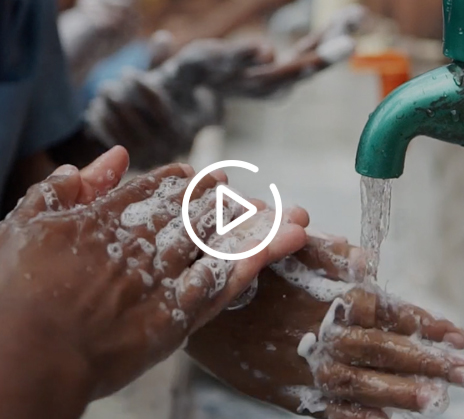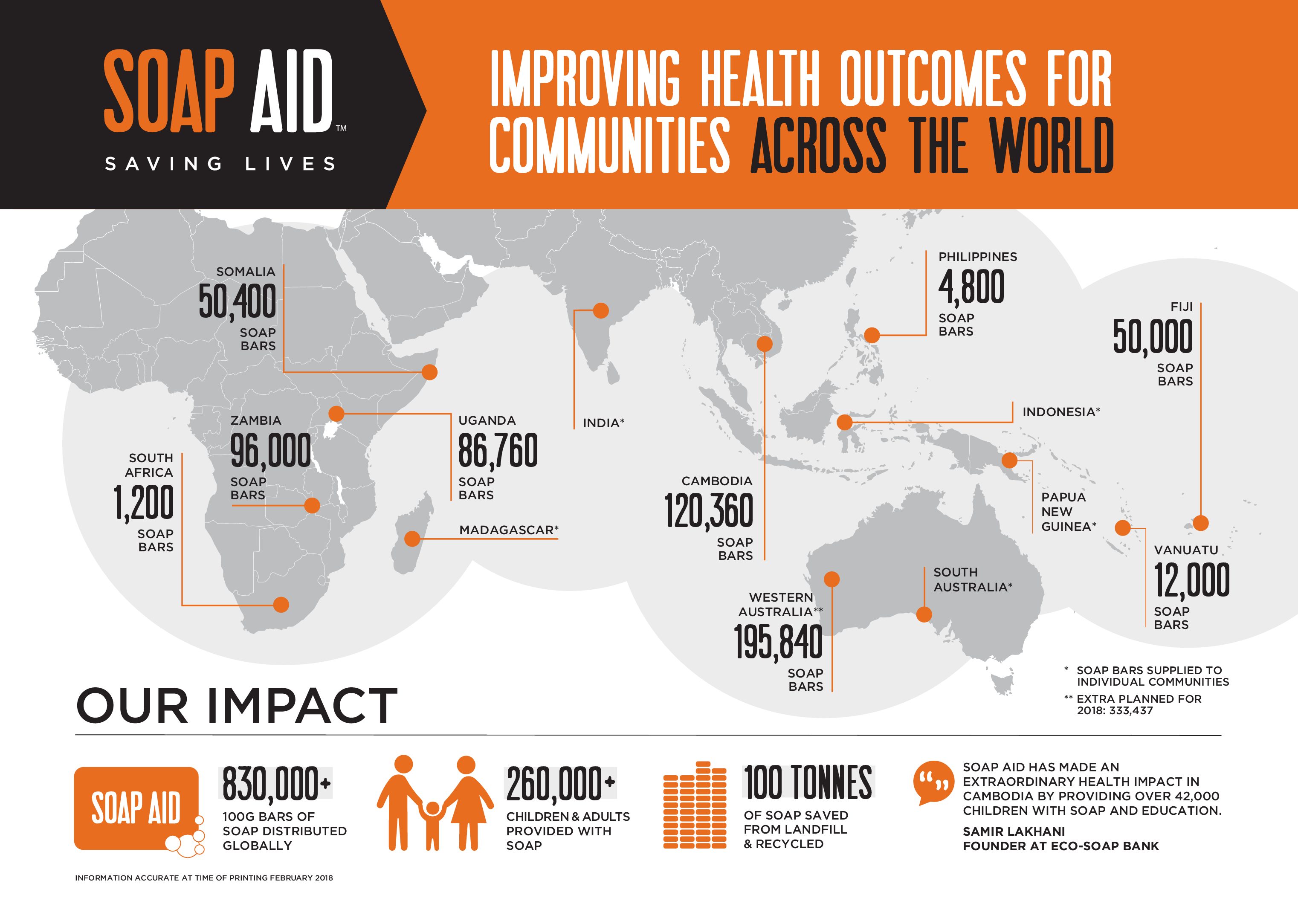Home > What We Do
Global Health Issue
More than two billion people across the world lack adequate sanitation causing the spread of infectious diseases and hygiene-related deaths. Tragically, 1.4 million children under the age of five die each year due to preventable childhood infectious diseases. Globally, diarrhea and pneumonia are among the leading causes of childhood deaths. Nearly as many children die from these two diseases as from AIDS, malaria, measles, meningitis, and tetanus combined.
Why Soap?
The World Health Organization and UNICEF Integrated Global Action Plan for Pneumonia and Diarrhoea (GAPPD) aims to end preventable child deaths by 2025. A key recommendation for the prevention and treatment of pneumonia and diarrhea is handwashing with soap.
Research has shown that handwashing with soap is vital to improving the health and development of children in disadvantaged communities, and can reduce the number of diarrhea cases by more than 40 percent.
Hand hygiene has a dramatic impact on preventing deaths and illnesses caused by trachoma, worm infections, chronic malnutrition, swine flu, pneumonia, SARs, no mortality, and diarrhea.
The benefits of handwashing with soap extend beyond improvements to health. Good hygiene removes barriers to education, nutrition, economic opportunity, and equity. Children are healthier, have less missed school days and have improved education outcomes.
Handwashing with soap and improved hygiene practices is a simple, effective way to save lives.
How does it work?
Globally, travelers and hotels throw away an estimated five million bars of waste or unused soap every day.
Large volumes of discarded soap end up in overflowing landfills and directly affect our precious environment.
Recognising this waste and in response to the growing and critical need for soap, Soap Aid developed its’ Hotel to Hands’ Program.
We collect, sort, clean and reprocess hotel soap into fresh, hygienic soap bars for distribution to targeted communities around the world.
We are committed to making meaningful and sustainable changes within the hotel industry by;
- Redirecting millions of bars of discarded soap from disastrous landfills
- Reducing the extraction and use of raw materials
- Reducing carbon emissions by 59% when compared to using virgin soaps*
*Carbon Reduction Institute (2016). Emissions Comparison Report. A comparative study of recycled and virgin soap for Soap Aid.

Discarded or used soaps from hotels are collected & sorted

New, hygienic soap bars are created

Unique re-processing equipment cleans, crushes & filters hotel soap

Bars of soap packed in boxes ready for distribution

Heating and blending process creates soap noodles ready for recycling

Soap and hygiene training are delivered to targeted communities

All used soap is recycled with no wastage

Hand washing with soap is extremely simple yet effective in saving lives
Our Impact
Soap Aid works directly with local community impact partners to ensure the ongoing supply of soap and vital hygiene education.
We are committed to improvements in handwashing behavior and partner with organizations, NGOs, government departments and other charities who are already engaged in communities to educate children and families on the use of handwashing with soap.
We are proud to have supplied our soap to targeted communities around the world.
Starting in Australia and now in the U.S, we will continue to expand our operations around the globe in response to the growing demand for critically needed soap.


